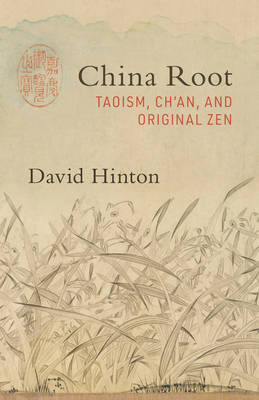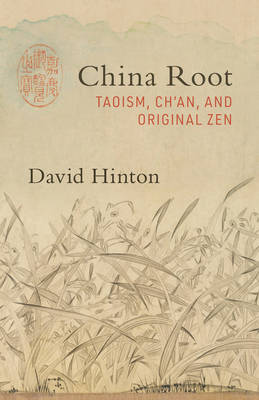
- Retrait gratuit dans votre magasin Club
- 7.000.000 titres dans notre catalogue
- Payer en toute sécurité
- Toujours un magasin près de chez vous
- Retrait gratuit dans votre magasin Club
- 7.000.0000 titres dans notre catalogue
- Payer en toute sécurité
- Toujours un magasin près de chez vous
Description
A beautifully compelling and liberating guide to the original nature of Zen in ancient China by renowned author and translator David Hinton. Buddhism migrated from India to China in the first century C.E., and Ch'an (Japanese: Zen) is generally seen as China's most distinctive and enduring form of Buddhism. In China Root, however, David Hinton shows how Ch'an was in fact a Buddhist-influenced extension of Taoism, China's native system of spiritual philosophy. Unlike Indian Buddhism's abstract sensibility, Ch'an was grounded in an earthy and empirically-based vision. Exploring this vision, Hinton describes Ch'an as a kind of anti-Buddhism. A radical and wild practice aspiring to a deeply ecological liberation: the integration of individual consciousness with landscape and with a Cosmos seen as harmonious and alive. In China Root, Hinton describes this original form of Zen with his trademark clarity and elegance, each chapter exploring in enlightening ways a core Ch'an concept--such as meditation, mind, Buddha, awakening--as it was originally understood and practiced in ancient China. Finally, by examining a range of standard translations in the Appendix, Hinton reveals how this original understanding and practice of Ch'an/Zen is almost entirely missing in contemporary American Zen, because it was lost in Ch'an's migration from China through Japan and on to the West. Whether you practice Zen or not, taking this journey on the wings of Hinton's remarkable insight and powerful writing will transform how you understand yourself and the world.
Spécifications
Parties prenantes
- Auteur(s) :
- Editeur:
Contenu
- Nombre de pages :
- 176
- Langue:
- Anglais
Caractéristiques
- EAN:
- 9781611807134
- Date de parution :
- 29-09-20
- Format:
- Livre broché
- Format numérique:
- Trade paperback (VS)
- Dimensions :
- 137 mm x 211 mm
- Poids :
- 226 g

Les avis
Nous publions uniquement les avis qui respectent les conditions requises. Consultez nos conditions pour les avis.






